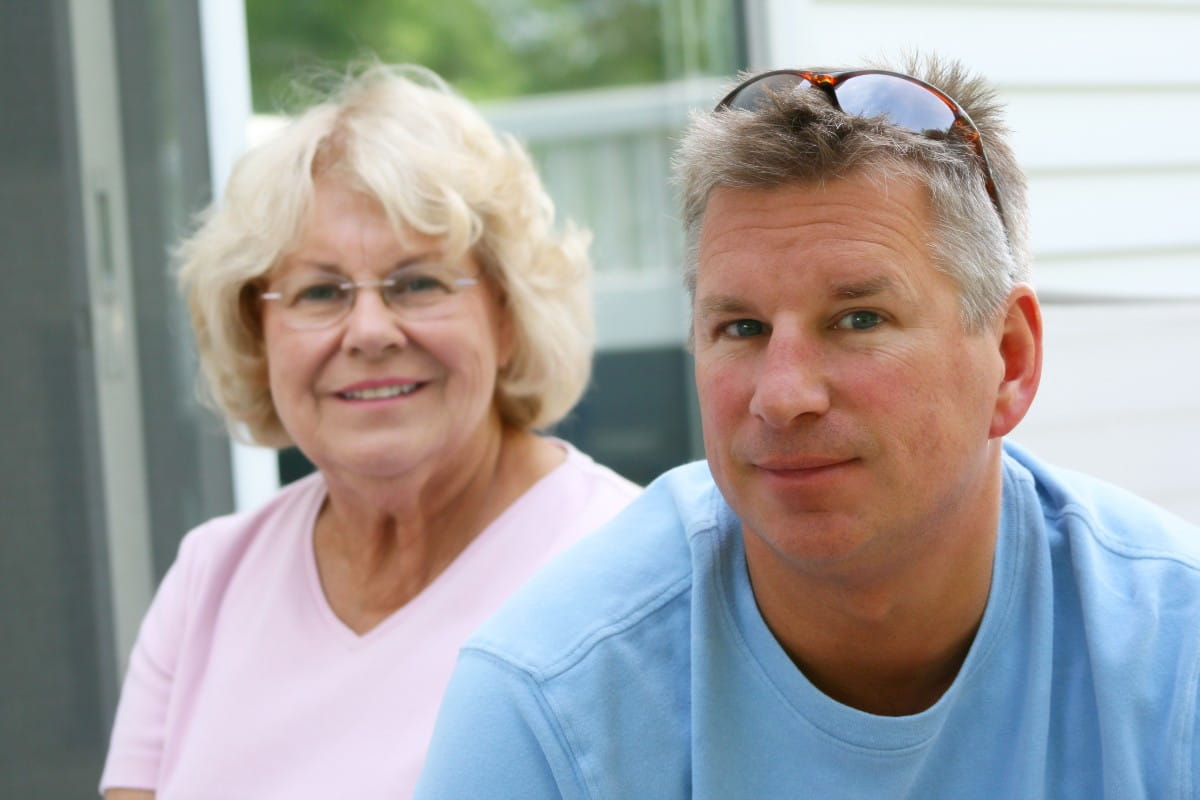There’s an increasing rate of colorectal cancer occurring in younger adults that’s sounding an alarm among physicians and cancer researchers alike. The American Cancer Society (ACS) reported that 20% of diagnoses in 2019 were in patients under 55. That’s double the rate in 1995. Each year, rates of advanced colorectal cancer diagnoses increased by about 3% in people under 50.
Colorectal cancer rates and mortality across the population are declining thanks to widespread screening. Among patients under 50 –– who aren’t as commonly screened –– it’s rising.
It’s not completely clear why rates of colorectal, as well as other forms of cancer, are increasing in the U.S. among a younger population. Some possible culprits are diet, environment, and changes to the gut microbiome.
What’s clear is lifestyle modifications can help reduce the risk of developing colorectal cancer –– or any cancer, for that matter.
Know the signs of colorectal cancer and get screened
Beginning at age 45, you should be screened for colorectal cancer. When found early before it spreads, localized colorectal cancer is very treatable and has a 5-year relative survival rate of 91%.
If colorectal cancer has already developed, a colonoscopy is no longer a preventive measure but a diagnostic one. Speak to your provider if you have any of the following symptoms:
- Blood in the stool
- Changes in bowel movements that don’t improve
- Constipation
- Early satiety (feeling full)
- Sudden weight loss
- Abdominal pain or cramping
- Rectal pain
- Fatigue and weakness
These could simply be from hemorrhoids, but it’s important to rule out colorectal cancer. “Don’t ignore any symptoms, no matter your age or the date of your last colonoscopy. Never assume it’s nothing. Get checked,”, says David Hanna, D.O., a fellowship trained gastroenterologist with Riverside Gastroenterology Specialists.
If colorectal cancer runs in your family, you should be screened at age 40 or 10 years before the age your loved one was diagnosed (whichever is sooner). Those with a known inherited colorectal cancer-associated syndrome, like Lynch syndrome, may need to be screened even earlier.
Patients with gastrointestinal disorders like inflammatory bowel disease, such as Crohn’s disease and ulcerative colitis, may need to be screened for colorectal cancer at an increased frequency.
There are many ways to get screened for colon cancer, but a colonoscopy is the current best measure (gold standard). It’s both a diagnostic and a preventative test because it allows your doctor to remove any polyps before they become cancerous. “One of the most gratifying parts about being a gastroenterologist is helping prevent something from happening in the first place,” says Dr. Hanna.
Maintain a healthy diet to reduce your risk of colorectal cancer
A healthy lifestyle is no guarantee of health and longevity. Everyone has a different risk level depending on factors like environment and family history. But making healthy life choices reduces your personal risk factors for a cancer diagnosis and gives you the best possible outcome in the case one should occur.
A healthy diet and weight can reduce your risk of developing cancer, including colorectal cancer. “Obesity increases the risk of many cancers” says Dr. Hanna.
The standard American diet (SAD), which consists of copious amounts of red meat and highly processed foods, increases inflammation. Studies show processed meats like hot dogs and deli meats have been linked to an increased risk of colorectal cancer. “Other countries, where the population has less access to meat, and their diet consists of more vegetables, have been shown to have fewer polyps in their population.” says Dr. Hanna.
Instead of the standard American diet, Dr. Hanna recommends eating the following:
- A Mediterranean diet, which includes plenty of vegetables, whole grains, fiber and lean fats –– like fish or chicken.
- Limit (or eliminate) processed foods with long lists of ingredients.
- Try to avoid foods with preservatives, like nitrates, which studies have shown are associated with cancer.
- Drink plenty of water (8-10 glasses a day) to avoid constipation.
Medically-assisted weight loss interventions, such as bariatric surgery or medication like Glucagon-like peptide-1 (GLP-1) agonists, are possible options for patients who may qualify and benefit. Some examples of medication are Ozempic/Rybelsus/Wegovy, Mounjaro/Zepbound, Byetta/Bydureon, Victoza/Saxenda, Trulicity. Lifestyle changes like a healthy diet and exercise should accompany any medical weight loss treatment.
Exercise can reduce your risk of colorectal cancer
Regular exercise has many benefits for your health, including lowering your risk of cancer. Dr. Hanna recommends 30 minutes of exercise 5-6 days a week. If that’s difficult, add five minutes of moderate to vigorous exercise to your routine. Consistency is key, and then you can build from there.
Cardiovascular training mixed with weight training is ideal. High-intensity interval training (HIIT) or circuit training workouts are particularly helpful for weight loss. “Alternating between a medium and intense pace during exercise amplifies the metabolic rate, and you're able to achieve more effective weight loss,” says Dr. Hanna.
Eliminate smoking and reduce or eliminate alcohol consumption
Smoking, vaping and moderate to heavy alcohol use all increase inflammation in your body, increasing your risk of cancer –– including colorectal cancer.
Quitting habits like smoking or drinking alcohol is not a feat most people achieve alone. Speak to your provider about getting support through cognitive behavior therapy, group programs or even smoking cessation medication like Wellbutrin.
There’s no magic elixir to good health, and a cancer diagnosis has multiple causes: especially genetic pre-disposition. Still, prioritizing your physical health has many positive outcomes –– including reducing your risk of colorectal cancer.
A primary care provider is essential for maintaining your health and well-being. Should you notice signs and symptoms, don’t delay, reach out to be evaluated. Schedule an appointment today.



